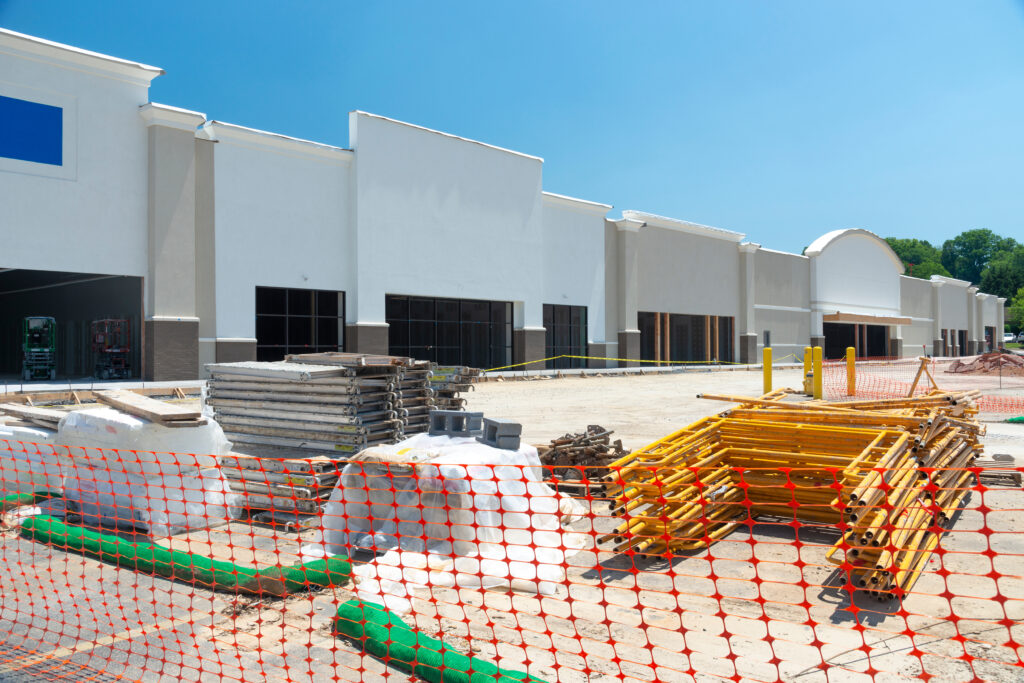

Notice of Completion and Notice of Cessation: Shielding You from Extended Liabilities
When work on your property reaches completion or pauses, timing is everything in limiting your liability to mechanics lien claims. As an owner, you have the ability to significantly reduce the time period in which a contractor, subcontractor, or supplier can file a mechanics lien against your property by recording a Notice of Completion or a Notice of Cessation.
- A Notice of Completion can be recorded within 15 days after the project’s completion (Cal. Civ. Code § 8182(a)).
- A Notice of Cessation can be filed if work halts for at least 30 days (Cal. Civ. Code § 8188(a)).
Both notices are powerful tools, but must be executed correctly to be effective.
What’s Required for a Notice of Completion?
To properly file a Notice of Completion, the document must include:
- The direct contractor’s name and a general statement of the work provided (Cal. Civ. Code § 8186).
- The owner’s successor in interest, if applicable, including their name and address.
- The nature of the owner’s interest or estate in the property.
- The date of completion of the project.
(Cal. Civ. Code § 8182(c))
Filing a Notice of Cessation
A Notice of Cessation is a helpful option if your project faces delays. This notice must include:
- The date labor ceased.
- A statement confirming that cessation continued up to the date of recording the notice.
(Cal. Civ. Code § 8188(c))
Both notices must be signed, verified, and comply with statutory requirements for written notices (Cal. Civ. Code §§ 8100-8119). They must also be recorded in the county where the work is being done. Moreover, once recorded, you must serve a copy of the notice to the direct contractor and any parties who served a preliminary notice, all within 10 days of recording (Cal. Civ. Code § 8190).
Notice of Nonresponsibility: Your First Line of Defense
If you are a property owner or have an interest in a property but did not contract for the construction work being performed, you can protect yourself from potential lien claims through a Notice of Nonresponsibility. This is especially relevant when tenants initiate improvements or renovations, as you may not want to be financially responsible for those projects.
To be effective, the notice must:
- Be signed and verified by the owner.
- Comply with the statutory requirements for written notices (Cal. Civ. Code §§ 8100-8119).
- Include:
- The nature of the owner’s title or interest in the property.
- The name of any purchaser under contract or tenant initiating the work, if known.
- A statement that the owner or person posting the notice is not responsible for claims arising from the work of improvement.
For the notice to protect your interests, it must be posted conspicuously at the job site and recorded within 10 days after you learn of the work being performed (Cal. Civ. Code §§ 1170, 8114, 8444). Timeliness and accuracy are key.
Benefits of Satisfying Statutory Requirements
Adhering to these statutory schemes provides significant advantages for landlords:
- Minimizing Financial Exposure: By properly recording a Notice of Completion or Notice of Cessation, you can substantially shorten the time frame for mechanics lien claims to be filed. Under California law, without recording a Notice of Completion or Cessation, lien claimants generally have 90 days after project completion to file a mechanics lien. However, when you record a Notice of Completion, that period is shortened to 60 days for direct contractors and 30 days for subcontractors and suppliers. This means potential lien claimants have a reduced window to make their claims, limiting your financial exposure.
- Clarity and Control Over Deadlines: These notices provide clear timelines that help you maintain control over your property’s finances, allowing you to close out construction projects efficiently and without fear of prolonged claims.
- Legal Protection for Property Owners: A properly posted Notice of Nonresponsibility shields you from mechanics liens arising out of work contracted by tenants or others, providing peace of mind that your property won’t be encumbered for someone else’s obligations.
- Preventing Disputes and Legal Hassles: By proactively following these statutory guidelines, landlords can avoid disputes with contractors, subcontractors, or suppliers who may otherwise file late or unfounded lien claims. Ensuring proper notice compliance makes it easier to defend against any unwarranted claims.
- Improved Negotiating Position: When lienholders know that you’ve taken all necessary steps to limit their window for filing claims, it can put you in a stronger negotiating position to resolve any disputes more quickly and favorably.
Staying compliant with these requirements is not only about meeting statutory obligations — it’s about staying in control of your property, mitigating risks, and maintaining your profitability.
Stay Proactive, Stay Protected
For commercial landlords in California, understanding these key legal tools — the Notice of Completion, Notice of Cessation, and Notice of Nonresponsibility — is essential in mitigating risks and protecting your investment. Whether you’re navigating tenant-initiated improvements or managing your own development projects, ensuring you meet statutory deadlines and requirements is critical in avoiding financial pitfalls.
Need help managing these legal nuances or want tailored advice for your commercial property? At AR | Legal Team, we specialize in helping landlords safeguard their investments through proactive legal strategies. Contact us today to learn how we can assist you in maintaining control and protecting your assets.

